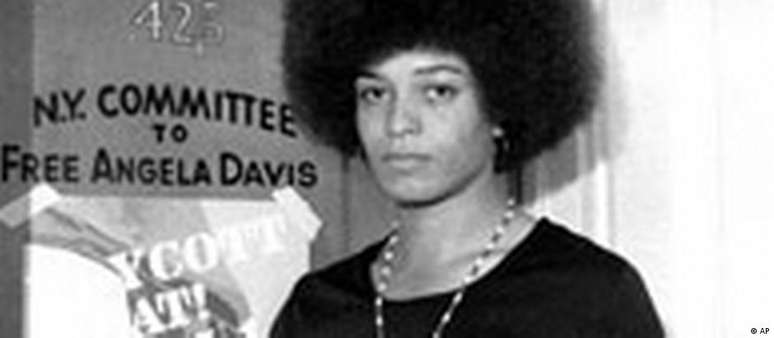On June 4, 1972, black American activist Angela Davis was acquitted of kidnapping and murder. The sentence of the judge of San José, in California, was nothing more than a formality: during the trial of three black teenagers, in 1970, four activists linked to the Black Panthers had invaded the San Rafael courthouse to free their “brothers of race ” ” (the Soledad brothers). They took the judge, a prosecutor and two jurors hostage. The police opened fire and, in the shooting, the judge, a juror and three black activists were killed. Angela Davis did not was at the crime scene, but a gun used in the shooting was registered to her.
Angela Yvonne Davis, one of America’s best-known black rights advocates, has had an outstanding career. She was born on January 26, 1944 in Birminghan (state of Alaabama), she attended a private school for blacks in New York and obtained a scholarship from the University of Massachusetts.
She studied French literature and later completed her postgraduate studies at the Sorbonne University in Paris. In California she was a student of Herbert Marcuse (1898-1979) -linked to the Frankfurt School-, who advised her to study in Germany. Angela lei then went to the Goethe University (Frankfurt), where she extensively studied communism and the works of Karl Marx with Theodor Adorno (1903-1969) and Jürgen Habermas.
He returned to the United States in 1968, when the country was rocked by race riots, and joined the Communist Party of America (PCUSA). She became an assistant professor of philosophy at UC Berkeley, but she found herself surrounded by enemies.
Expulsion for being a communist
The then anti-communist governor of California, Ronald Reagan, tried to force his resignation in every possible way. His competence as a teacher has never been questioned in the academic world. Even so, she was sacked from office in 1969, due to her ties to the party.
Expelled from the university, Davis escalated her political militancy and ended up involved in the 1970 kidnapping. Her friend Jonathan Jackson, 17, leader of the kidnappers, killed in shootout with police, had a gun registered in the philosopher’s registry first name. It was a perfect pretext for justice to arrest the black activist, known for her fight for the release of political prisoners. The prosecutor accused her of complicity in the kidnapping and conspiracy to commit crimes. The FBI listed her as one of the ten most violent criminals in the United States. Davis went underground.
Arrested by the FBI in Manhattan, she spent 16 months in custody. An international solidarity movement has raised funds for her defense. In the midst of the Cold War, the trial had worldwide repercussions for the involvement of a self-confessed communist. Although the jurors were all white, the black activist was acquitted on June 4, 1972.
In the mid-1970s, Davis returned to teaching. Winner of the Lenin Prize, she returned to the headlines in 1980, when she ran for vice-presidency of the United States. You left the Communist Party, but continue to be active in the movements against racism and political repression. She also writes books, lectures, and advocates for women of color.
Source: Terra
Rose James is a Gossipify movie and series reviewer known for her in-depth analysis and unique perspective on the latest releases. With a background in film studies, she provides engaging and informative reviews, and keeps readers up to date with industry trends and emerging talents.







